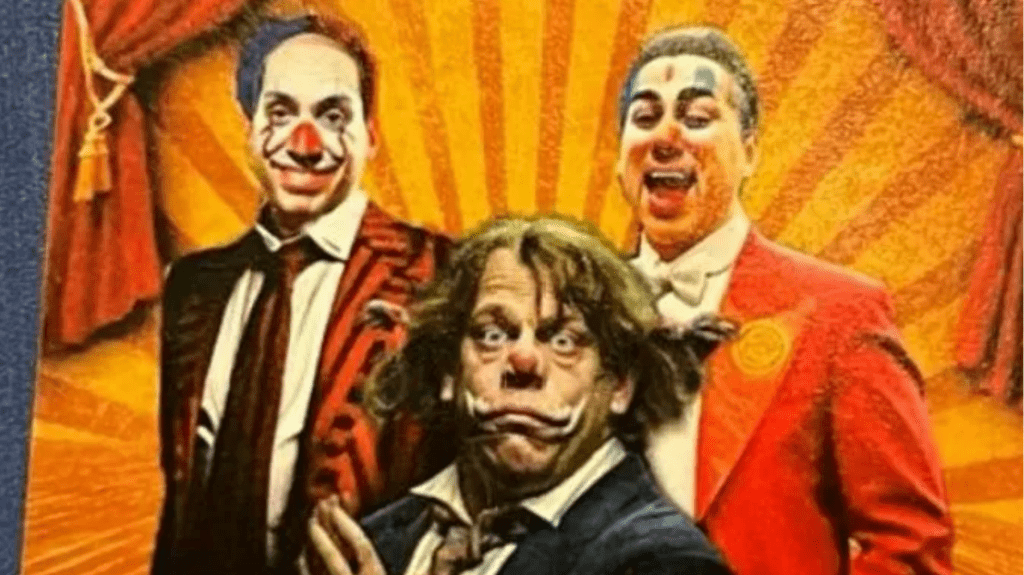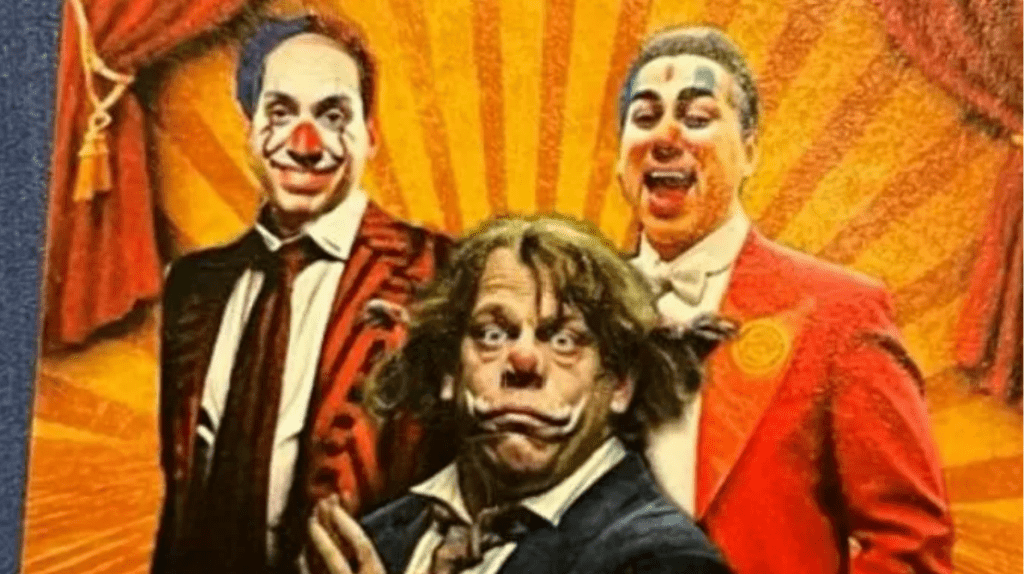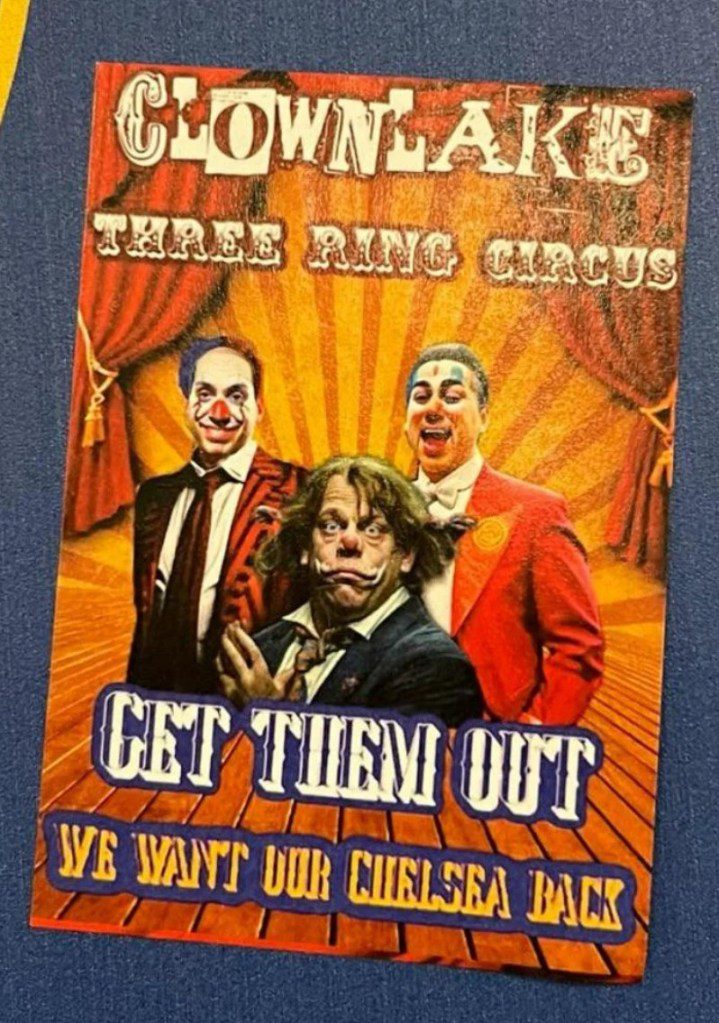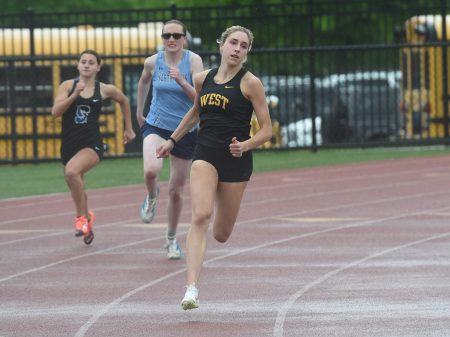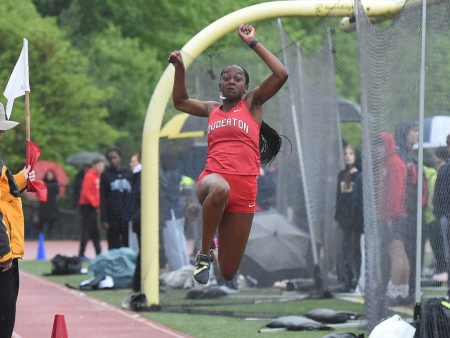Chelsea Supporters have started a campaign to remove the club’s owners and have made stickers with Todd Boehly a clown.
BlueCo, the group led by Boehly, Clearlake Capital, Mark Walter and Hansjörg Wyss, gained control of Chelsea in May 2022 from Roman Abramovich.
The team from west London had a successful period under the Russian, but things have been terrible for the club since the change in ownership.
Chelsea experienced a dreadful 12th-place Premier League finish last season and are currently struggling, sitting 11th in the table.
They have not won any major trophies since Boehly became co-owner – losing the Carabao Cup final to Liverpool in February – and have completely reconstructed the squad, substituting a number of well-known players with young talents on large contracts, spending over £1 billion on new players.
Thomas Tuchel was the head coach when the takeover was finalized but he was controversially dismissed and replaced by Graham Potter by the new owners.
Potter was then also removed from the role following a poor run, as Mauricio Pochettino came in this summer after Frank Lampard’s time as interim boss.
Chelsea fans are tired of BlueCo and have started a campaign against the owners, making stickers that they plan to place around Stamford Bridge.
The poster says: ‘Clownlake. Three ring circus. Get them out, we want our Chelsea back.’
The Chelsea Supporters’ Trust wrote a severe letter to Boehly and Behdad Eghbali this month, cautioning that a lack of clear direction could lead to ‘irreversible toxicity’ and that ‘more impactful forms of protest’ could be on the way.
‘The current mood among supporters is critically low and cannot be ignored,’ they wrote. ‘The feeling that the club has become a ‘laughing stock’, both on and off the pitch, is growing.
‘The Chelsea Supporters’ Trust regretfully believes that we are close to, if not already experiencing, a significant shift in supporter opinion that could result in irreversible toxicity, almost irrespective of results on the pitch.
‘Unless the situation improves, this seems likely to manifest itself in more targeted chanting, especially at televised games, and quite possibly more organized, overt and impactful forms of protest by some sections of the fanbase.’





